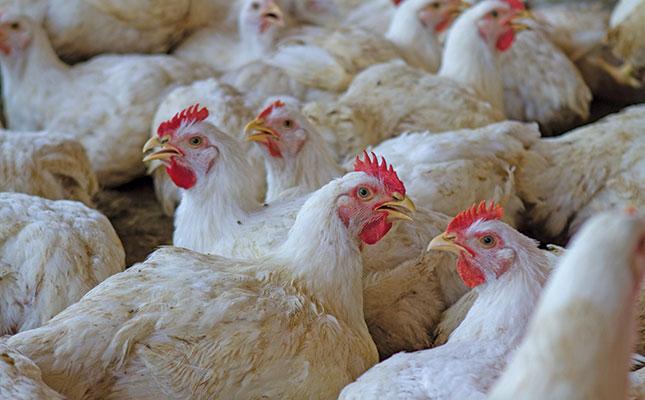Hong Kong authorities have announced a ban on imports of poultry products from selected regions in Denmark, Germany, and Belgium, citing concerns over the recent outbreaks of avian influenza. The move aims to prevent the spread of the highly contagious bird flu virus and safeguard local public health. This decision follows closely monitored developments in Europe, where several countries have reported increased cases of the disease among poultry farms. The ban, detailed by Anadolu Ajansı, reflects Hong Kong’s proactive measures in controlling animal-borne diseases amid global agricultural trade.
Hong Kong Imposes Import Ban on Poultry Products from Denmark Germany and Belgium Amid Health Concerns
Hong Kong’s Food and Environmental Hygiene Department has announced a stringent policy restricting the import of poultry products originating from specific regions in Denmark, Germany, and Belgium. This decisive action follows recent health risk assessments linked to contagious avian diseases reported in these countries, which pose potential threats to local agricultural safety and public health. Authorities emphasized that the preventive measures will remain effective until further notice, reflecting a commitment to minimize cross-border biosecurity risks.
The import ban encompasses a range of poultry-derived goods, including fresh, chilled, frozen meat, and processed products. The affected areas have been identified based on recent infection outbreaks, prompting targeted containment protocols. Traders and importers are advised to comply strictly with the new directives to avoid product seizures and penalties. Below is a summary table outlining the affected countries and the status of their poultry import restrictions:
| Country | Affected Regions | Ban Status |
|---|---|---|
| Denmark | Southern Jutland | Full Import Ban |
| Germany | Lower Saxony & Bavaria | Full Import Ban |
| Belgium | Flanders Region | Full Import Ban |
- Impact on trade: Importers must verify product origin before shipment.
- Health monitoring: Enhanced screening procedures will be enforced at ports.
- Duration: Restrictions will continue pending official clearance from health authorities.
Authorities Cite Avian Influenza Outbreaks as Reason for Restrictive Measures
In a decisive response to recent avian influenza outbreaks, Hong Kong authorities have implemented stringent restrictions on poultry imports originating from designated regions in Denmark, Germany, and Belgium. These measures aim to curb the spread of the highly contagious virus, which poses significant threats to both animal and public health. Officials emphasized that the bans are temporary but essential steps to contain the disease and safeguard local poultry industries.
Key measures announced include:
- Immediate suspension of poultry product imports from affected EU zones
- Enhanced inspection and quarantine protocols at entry points
- Close monitoring of avian influenza developments in Europe
| Country | Affected Regions | Restriction Type |
|---|---|---|
| Denmark | Zealand, Funen | Import ban on all poultry products |
| Germany | North Rhine-Westphalia, Lower Saxony | Temporary suspension of poultry imports |
| Belgium | Flanders | Ban on fresh and frozen poultry |
Industry Experts Recommend Enhanced Biosecurity and Vigilant Monitoring to Mitigate Impact
Leading figures in veterinary health and agricultural management emphasize the necessity of stricter biosecurity protocols to curb the spread of avian diseases amid recent import bans. They advocate for robust containment measures at farms and processing plants, including controlled access, routine disinfection, and the use of personal protective equipment to prevent cross-contamination. Such preventative strategies are critical to safeguarding local poultry industries and ensuring public health safety in vulnerable regions.
Continuous and vigilant monitoring through advanced diagnostic techniques and real-time data sharing among international agencies is equally essential. Experts recommend implementing the following measures to enhance disease surveillance:
- Regular testing of flocks at high-risk locations
- Transparent reporting systems to track outbreaks swiftly
- Collaborative efforts between governments and private sectors for timely intervention
| Recommended Action | Expected Benefit |
|---|---|
| Enhanced Farm Biosecurity | Reduced contamination risk |
| Routine Surveillance Testing | Early detection of infections |
| International Data Exchange | Coordinated outbreak response |
Insights and Conclusions
Hong Kong’s decision to ban imports of poultry products from affected regions in Denmark, Germany, and Belgium marks a significant step in its efforts to prevent the introduction and spread of avian influenza. As authorities continue to monitor the situation closely, the move underscores the ongoing challenges posed by animal disease outbreaks to international trade and public health. Stakeholders in the poultry industry and consumers alike will be watching developments in both Europe and Hong Kong to assess the impact of these restrictions in the weeks ahead.




